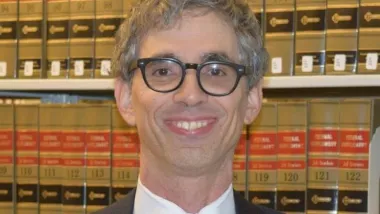Some commentators think that Internet technology will liberate us from the constraints of place; for example, one amazon.com book review of Joel Kotkin’s The New Geography states “Because today's connected workers can live anywhere they want, they will live anywhere they want.” Kotkin himself is a little more circumspect, but writes: “Telecommunication allows people who want privacy, low-density neighborhoods and good schools to live in small towns in a way never before possible.”(1) There is a tiny amount of truth to this claim: the Internet does make it
Some commentators think that Internet technology will liberate us from the constraints of place; for example, one amazon.com book review of Joel Kotkin's The New Geography states "Because today's connected workers can live anywhere they want, they will live anywhere they want." Kotkin himself is a little more circumspect, but writes: "Telecommunication allows people who want privacy, low-density neighborhoods and good schools to live in small towns in a way never before possible."(1) There is a tiny amount of truth to this claim: the Internet does make it easier to run a home-based business, which means that some people can sell stuff from their homes without worrying about commuting.
But most businesses of any size will eventually need employees. And many of those employees will actually need to see their bosses and coworkers, rather than telecommuting. In fact, while part-time telecommuting has increased in recent years, the number of full-time remote telecommuters has decreased from 14.7 million in 2006 to 13.5 million in 2008, just under ten percent of American workers.(2) And I suspect that even some of these telecommuters must be in the same metropolitan area as their bosses. In other words, the overwhelming majority of workers still need to go where the jobs are.
For example, I moved from Washington, DC to Jacksonville, Florida three years ago. Did I do this because I was in love with Jacksonville? Hardly. I did it because I am a law professor, and a school in Jacksonville offered me a job. Of course, law schools are an unusual business; there are only about 200 law schools in the United States, due to state accreditation rules that limit entry into the law school market. But even when I practiced law, I found that I could rarely live in my ideal city: my last law firm was in Buffalo, New York. Buffalo, like Jacksonville, was not my first (or second or third or fourth) choice- but it was where I had a job offer.
And in both teaching and practice, I actually had to show up at work now and then. As a teacher, I only have to be physically present to teach six hours a week. However, my boss strongly encourages faculty to be on-site about 30 hours a week, so we can be more accessible to students. So I can't just live in a faraway city and fly to classes twice a week.
And I have additional (admittedly self-imposed) constraints that limit my options. I want to be within walking distance of a synagogue. That limits me to just one neighborhood in Jacksonville (unless I want to live 20 miles away in Ponte Vedra). And since I want to be able to use public transit to get to work, Ponte Vedra is off the table.
And if I wish to leave my job, what then? The scarcity of law school jobs limits my options, just as the scarcity of jobs in other fields limits the options of most other wage-earners. And I can't switch countries too easily because of institutional barriers to entry. For example, to teach in Canada or in most other English-speaking countries outside the U.S. I need an additional law degree called an L.L.M (which I am taking a year off to get; however, most people my age probably lack the money or time to do so).
So what's my point? My point is that most Americans cannot live in place X just because they like place X. (3) Instead, people go where they can get a job - just as they had to do in 1950 or 1970 or 1990.
(1)http://joelkotkin.com/Urban_Affairs/WP%20Turns%20Out%20Theres%20Good%20News%20on%20Main%20St.htm
(2) http://thenewpioneers.com/2009/02/20/casual-telecommuting-rises-serious-remote-work-stalls/
(3) I realize that I am not "most Americans." But since I am more educated and affluent than most Americans, I suspect that people with fewer options have even less flexibility.

Planetizen Federal Action Tracker
A weekly monitor of how Trump’s orders and actions are impacting planners and planning in America.

Chicago’s Ghost Rails
Just beneath the surface of the modern city lie the remnants of its expansive early 20th-century streetcar system.

Amtrak Cutting Jobs, Funding to High-Speed Rail
The agency plans to cut 10 percent of its workforce and has confirmed it will not fund new high-speed rail projects.

Ohio Forces Data Centers to Prepay for Power
Utilities are calling on states to hold data center operators responsible for new energy demands to prevent leaving consumers on the hook for their bills.

MARTA CEO Steps Down Amid Citizenship Concerns
MARTA’s board announced Thursday that its chief, who is from Canada, is resigning due to questions about his immigration status.

Silicon Valley ‘Bike Superhighway’ Awarded $14M State Grant
A Caltrans grant brings the 10-mile Central Bikeway project connecting Santa Clara and East San Jose closer to fruition.
Urban Design for Planners 1: Software Tools
This six-course series explores essential urban design concepts using open source software and equips planners with the tools they need to participate fully in the urban design process.
Planning for Universal Design
Learn the tools for implementing Universal Design in planning regulations.
Caltrans
City of Fort Worth
Mpact (founded as Rail~Volution)
City of Camden Redevelopment Agency
City of Astoria
City of Portland
City of Laramie






























